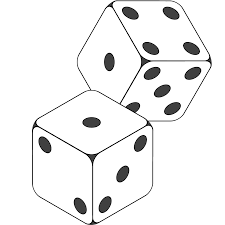记忆方法
将“dice”与“dis”联系起来,想象一块被切成“dis”(分割)形状的立方体,即骰子。这种视觉联想可以帮助记忆“dice”这个单词与骰子(用于投掷游戏)的含义。
以上内容由AI生成, 仅供参考和借鉴
中文词源
dice 骰子
die的复数形式。
英语词源
- dice
-
dice: [14] Dice originated, as every schoolboy knows, as the plural of die, which it has now virtually replaced in British English as the term for a ‘cube marked with numbers’. Die itself comes via Old French de from Latin datum, the past participle of the verb dare (and source also of English date). The main meaning of dare was ‘give’, but it also had the secondary sense ‘play’, as in ‘play a chess piece’.
The plural of the Old French word was dez (itself occasionally used as a singular), which gave rise to such Middle English forms as des, dees, and deys and, by around 1500, dyse. The singular die survives for ‘dice’ in American English, and also in the later subsidiary sense ‘block or other device for stamping or impressing’ (which originated around 1700).
=> date, donate - dice (n.)
- early 14c., des, dys, plural of dy (see die (n.)), altered 14c. to dyse, dyce, and 15c. to dice. "As in pence, the plural s retains its original breath sound, probably because these words were not felt as ordinary plurals, but as collective words" [OED]. Sometimes used as singular 1400-1700.
- dice (v.)
- "to cut into cubes," late 14c., from dice (n.). Meaning "to play at dice" is from early 15c. Related: Diced; dicing.
权威例句
- 1. A throw of the dice allows a player to move himself forward.
- 掷一次骰子,玩家可相应向前移动.
- 2. Peel, stone and dice the mango.
- 将芒果削皮、去核、切丁。
- 3. Dice the onion.
- 把洋葱切成丁。
- 4. a pair of dice
- 一对骰子
- 5. A dice is a cube.
- 骰子是立方体.
